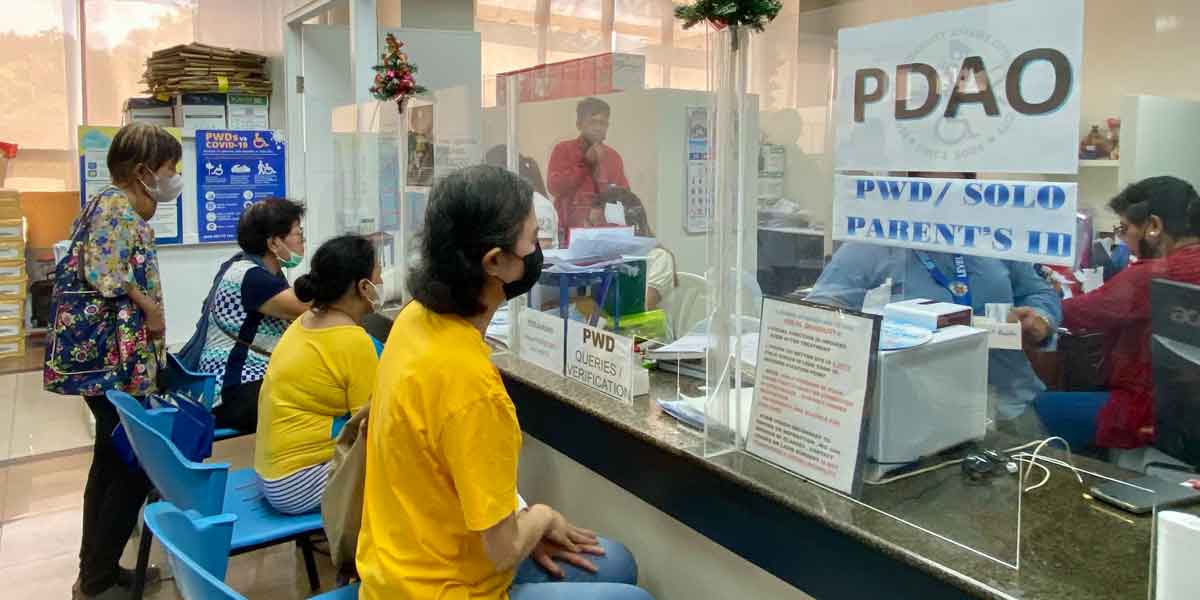By Herbert Vego
IN a telephone conversation with Iloilo City councilor Duron, I expressed concern over the proposed ordinance seeking to restrict the mobility of unvaccinated individuals within the city.
As I was writing this yesterday, the Sangguniang Panglunsod’s committee on rules and committee on health – chaired by Duron and councilor Allan Zaldivar, respectively – were conducting a public hearing on the matter.
If passed and approved by Mayor Jerry P. Treñas, the ordinance would compel non-fully vaccinated persons to stay at home always, except when purchasing essential goods and services. Violators would be fined five hundred pesos for the first violation, and much more thereafter.
Otherwise, they have to present a “negative” RT-PCR test result taken within the last 72 hours.
If it was the mayor who had pushed for the proposed ordinance, we are not surprised. It has been months since he declared the Iloilo City Hall “off limits” to the “jabless”.
“The restriction against the non-vaccinated leaving home,” Duron appeased me, “would only apply whenever we are on ‘alert level three’; and would be lifted if below.”
The same restriction is now being implemented in Metro Manila.
The Inter-Agency Task Force (IATF) has allowed local government units to impose an alert level depending on the rise and fall of local Covid-19 cases.
No less than President Duterte has even asked barangay leaders to arrest unvaccinated people who insist on leaving their homes.
The legality of “house imprisonment” of the unvaccinated is a ticklish issue. No less than Article III (Bill of Rights) of the Constitution provides that “the right to travel can be impaired only in the interest of national security, public safety, or public health, as may be provided by law.”
There is no national law to that effect yet.
Well, at least, I am sure it’s not to follow President Duterte that Mayor Treñas wants the council to pass the proposed edict. He simply wants to ramp up vaccination and booster shots “to give adequate protection to everyone.”
The unvaccinated, however, would naturally wonder, “If the vaccines could give the vaccinated such adequate protection, then why be afraid of the unvaccinated?”
Well, anyway, this writer does not discriminate. To be or not to be vaccinated, I believe, is an individual prerogative. The instinct for survival is inherent in everybody. But what’s good for Pedro may not be good for Juan.
In a past column, I already ventilated my doubts on the way our government has been dealing with Covid-19 cases. Having been confined for 12 days in a hospital, I know that it’s medicine, not vaccine, that is needed by Covid-19 patients.
“The Food and Drug Administration,” my doctor said, “has not approved any anti-Covid drug.”
My only alternative was to agree to sign a waiver absolving the doctor and the hospital of accountability in exchange for “emergency-use-only” drugs.
And having fought and won my battle at age 71, I affirm that my own immune system – thank God — has produced antibodies that would recognize and “scare” coronavirus next time.
-oOo-
‘WALANG TULOGAN’ EMPOWERED THEM
“We did not sleep that night,” said Maricel C. Pe, the winsome head of MORE Power’s Customer Care Department, in a recent interview in “Tribuna sang Banwa” on Aksyon Radyo.
She was recalling the date December 16 when typhoon Odette ravaged many provinces in the Visayas and Mindanao.
Iloilo City was among the places that lost electricity due to fallen trees and poles and other damages that paralyzed the distribution utility.
To our surprise, most of the city lit up within 24 hours.
“We were all deployed on the field,” Pe recalled. “No less than Sir Roel spearheaded the power-restoration job.”
Talking of leadership by example, “Sir Roel” is Roel Z. Castro, the hands-on president and chief operating officer of MORE Power.
“Another power outage hit barangay San Juan on December 17,” Pe said. “We took it as another hurdle to pass through.”
The two incidents were not without good results. They gave way to installation of new concrete poles, upgraded wires, transformers and other high-tech gadgets.
“We were so thankful Iloilo was not as hard-hit as Negros Occidental that we sent two teams to Kabankalan City,” she recalled, “to restore the flattened power lines.”
The teams, made up of 32 technical men spread out to areas covered by Central Negros Cooperative (CENECO) and Negros Occidental Electric Cooperative (NOCECO). They are now on their 20th day of restorative work there.
The contingent – which also distributed 1,350 packs of relief goods and cash donations to typhoon victims — is MORE Power Foundation’s answer to the call of the National Electrification Administration (NEA) to organize the Task Force Kapatid aimed at fast-tracking re-energization of devastated cities and municipalities.
“As our corporate responsibility arm,” Pe announced, “MORE Power Foundation has laid out more activities this year – such as tree planting and urban gardening — in cooperation with the Iloilo City government.”




















